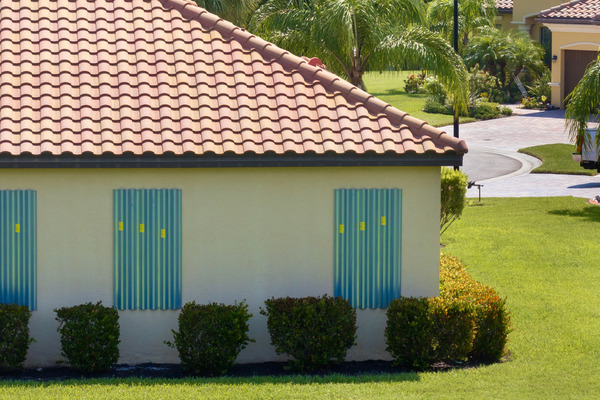Surviving Hurricane Season as a Central Florida Property Investor: A Comprehensive Guide
Posted: June 5th, 2025
June Marks the Beginning of Hurricane Season
And just like that, hurricane season is back again. From the beginning of June through the end of November, hurricanes and other tropical storms are more likely to form in the Atlantic Ocean, putting East Coast residents (including Floridians!) at a higher risk of incurring storm-related issues. As Floridians, we’re used to preparing our homes and families for storm season each year–but that doesn’t make hurricanes any less scary or unpredictable when they arrive.
If you own investment property in Central Florida, you’ve got your hands full this season. Not only do you need to prepare your own home and family, you also have to ensure that your properties and tenants are ready when the first storms head our way. Not to worry–you can absolutely help keep your tenants safe and minimize property damage with some hurricane knowledge and forethought. Let’s start by discussing how hurricanes and hurricane season affect rental properties overall.
Hurricane Season and Your Rental Property
Hurricane season brings along a number of risks for investment property owners. The following are a few potential outcomes of a busy hurricane season.
Property Damage
The most obvious effects of hurricane season come in the form of property damage. High winds and heavy rain can take a toll on your home. The most commonly reported types of damage include roof damage, leaks, broken windows, flooding, mold growth, and landscaping damage.
As with your personal home, your first action after a storm should be surveying your rental property for damages. Once you know the location is safe to enter, take pictures and make notes of any damage you find. Address any critical issues as soon as possible, and turn to your network of preferred vendors and contractors to knock out larger repairs.
Income Disruption
If your property incurs any of the damage we mentioned above, your property may become uninhabitable for your tenants, leading to a loss of income. Even if your property remains in relatively good condition after the storm dissipates, your tenants may decide that a property in the tropical storm zone isn’t the right choice for them. Finally, if you manage a short-term rental property, you’re sure to experience cancellations during the storm season.
Tourism is a major source of revenue in Central Florida, but tourism tends to dip in the summer months–a trend that is often reflected in the real estate market. Pre-season preparation is key to ensuring your income remains stable.
Insurance Issues
By now, you’re most likely aware of Florida’s housing insurance issues. Following major storms, insurance companies reevaluate risk in affected regions, often leading to increased insurance costs. You may also find your policy revised to reflect stricter terms, like higher deductibles for damages.
Insurance companies have also been known to drop policies outright after major natural disasters. When this happens, you need to prioritize setting up a new homeowners insurance policy as soon as possible.
As an investment property owner, it’s prudent to maintain a thorough understanding of your insurance policy. Educate yourself on details like how to file claims, your deductibles for hurricane-related damage, and keeping your policy up to date.
Preparing Your Investment Property Before the Storm
If you haven’t already started, now is the time to prepare for any upcoming storms. Here are a few steps you can take as an investment property owner in Central Florida.
Upgrade the Home with Hurricane Safety Features
Hurricane impact-rated windows and doors are must-haves for any coastal properties. It’s also a good idea to install a quality hurricane shutter system at your property, if possible. Both of these will go a long way in preventing impact damage from high winds and debris.
Inspect the Landscaping and the Home’s Exterior
Schedule a walk around the property and take note of issues like overgrown trees, roof damage, damaged seals, and torn screens. If necessary, hire professionals to trim trees, repair the roof, and seal up any cracks. It’s also a good idea to clean out the gutters to prevent standing water around the home.
Create a Safety Plan for Your Tenants
Your tenants should play a part in securing the property before a storm comes. Your preparedness guide should include:
- Instructions on bringing in any outdoor furniture and unsecured items
- Emergency contact numbers
- Locating water, gas, and electricity shutoffs
- A list of supplies to gather
This can be especially helpful for tenants from out of state who are experiencing a hurricane for the first time.
Gather Important Documentation
When your investment property incurs storm damage, it’s crucial that you make repairs as soon as possible for the safety of your tenants and to keep your business running smoothly. Make sure any important paperwork, especially your insurance policy, is readily available for you to make any claims.
Keep Your Investment Property Safe This Season
As the saying goes, “an ounce of prevention is worth a pound of cure.” Hurricane season poses a number of threats to investment properties, but by planning ahead and performing proactive maintenance, you can help keep your property and its tenants safe.
Ellingson Properties offers comprehensive property management services and can attend to both tenant and owner inquiries with solutions that satisfy both parties. To learn more, call us at 321-750-7050.

